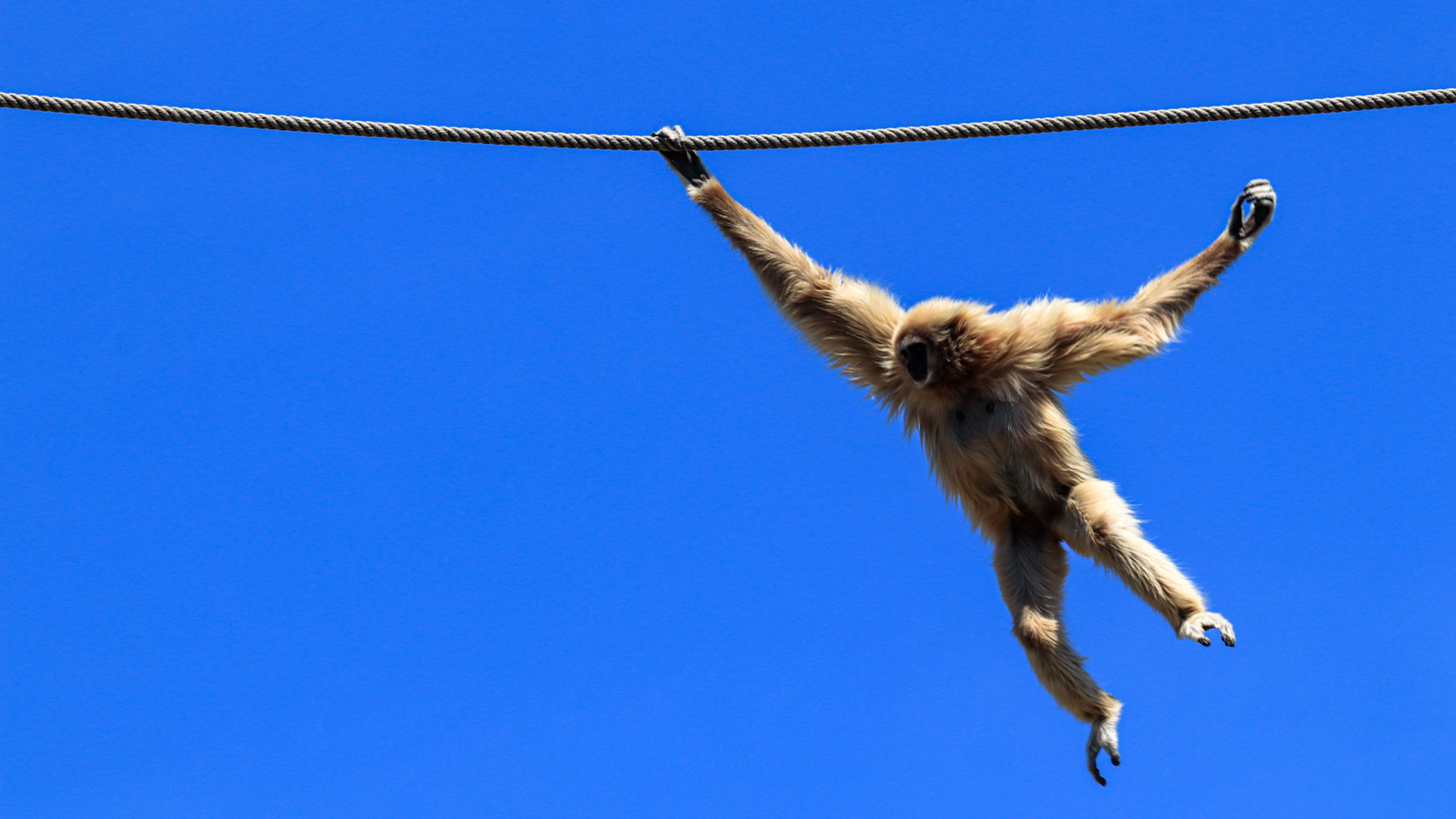Spanish scientists are making ‘very promising’ human-monkey chimeras in China

Still from Tim Burton's 2001 film, "Planet of the Apes."
- Leaked research by Spanish scientists claims that they've created the world's first human-monkey chimera embryo.
- Lead researcher, Juan Carlos Izpisúa has previously worked on pig-human embryos.
- Their intended goal of the study is to use the animals to create organs for human transplant.
Scientists controversial claim that they’ve created the first human-animal hybrid in a Chinese laboratory has been leaked to the Spanish newspaper El Pais. A team of Spanish researchers operating in China, say they’ve created embryos that are part human — and part monkey.
Biologist Juan Carlos Izpisúa, who also operates a lab at the Salk Institute of California, led the research project.
Their stated goal is to one day figure out how to use the animals to create organs for human transplants. They believed that creating a hybrid was an important first step. Human-animal “chimeras” would be utilized as sources for transplantation.
More specifically, the team injected human stem cells into a monkey embryo, giving the cells the capability to create any kind of tissue within the embryo. The test was halted, however, before any gestation period could commence, which kept them out of shakier ethical territory. Even still, the Spanish scientists were required to hold the experiment in China as it has a greater infrastructure in the transgenic scientific domain — that is to say, more lax laws.
Creating human-monkey chimeras
The creation of chimeras is relatively straightforward. Scientists inject human embryonic stem cells into an embryo of another species that’s only a few days old.
Izpisúa has experience with this type of research, as he previously tried to add human cells into pig embryos. His research with pigs hit a roadblock, which is why he shifted toward experimenting on primate embryos.
Scientists genetically engineer certain types of animal cells to be disabled so that there is a greater chance for the human stem cells to take hold. This kind of research is not allowed in the United States, the National Institutes of Health states that federal funds cannot be used to create human-monkey chimera embryos. China, on the other hand, has no such law.
No such human-monkey hybrid has ever been born. The mixed embryos do not progress past one to two weeks of growth inside the lab. In a statement to El País, Estrella Núñez, biologist and administrator and Catholic University of Murcia, said that mechanisms have been put in place to halt the growth progress.
Some ethical concerns that were raised, such as the fear that human stem cells could somehow migrate into the monkey embryo brain.
Dr. Ángel Raya, of the Barcelona Regenerative Medicine Centre told El Pais: “What happens if the stem cells escape and form human neurons in the brain of the animal? Would it have consciousness? And what happens if these stem cells turn into sperm cells?”
Núñez remarked that the human cells would self destruct if they made their way to the brain.
Additionally, Raya said that, traditionally, scientists have set an agreed-upon destruction date of 14 days’ gestation. That is, so the embryo does not have time to develop a human central nervous system.
Implications of the potential research
Izpisúa is optimistic about the yet to be published research “We are now trying not only to move forward and continue experimenting with human cells and rodent and pig cells, but also with non-human primates,” he says. “Our country is a pioneer and a world leader in these investigations.”
Núñez describes the results as “very promising,” and stated that the research is pending peer review in a respected scientific journal. At this point, we won’t know the full extent of the experiment until the research is published.
This news comes in the wake of Japan becoming the first country to approve of human-animal embryo experiments. The Japanese government intends on letting stem cell researchers conduct experiments with the same goal of one day creating organs that could be transplanted into humans.
There is still some debate as to whether this is the best method. Pablo Ross, a veterinary researcher at the University of California, Davis, who worked on pig-human chimera experiments, doesn’t believe that it makes sense to grow human organs in monkey cells, for instance.
“I always made the case that it doesn’t make sense to use a primate for that. Typically they are very small, and they take too long to develop,” he says.
Ross thinks that the researchers may be after more fundamental scientific questions — the “questions of evolutionary distance and interspecies barriers.”
Research like this can make the public and ethicists alike feel squeamish. Regardless of whether the research turns out to be valid or productive, it is regardless — on its face — still pushing the boundaries of biological and genetic inquiry.
Although China has had its own public relations misstep with scientist He Juankui, who edited the genes of two babies to be resistant to HIV, the country’s open laws overall allow for more daring experimentation.
Transgenic biotechnology will be a revolutionary step in combating a wide range of diseases and disorders. Perhaps even one day it could usher in new expressions of human traits.





